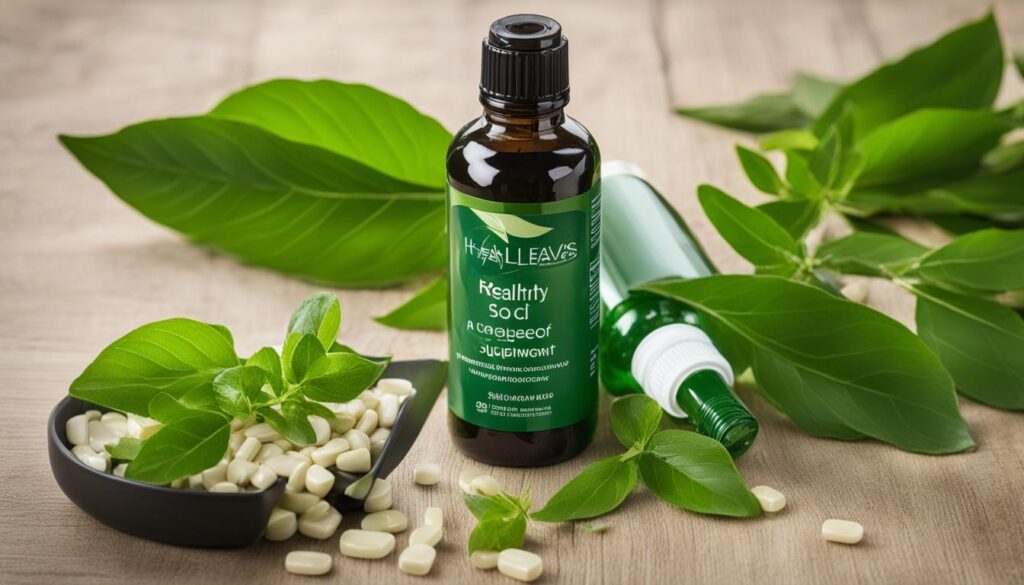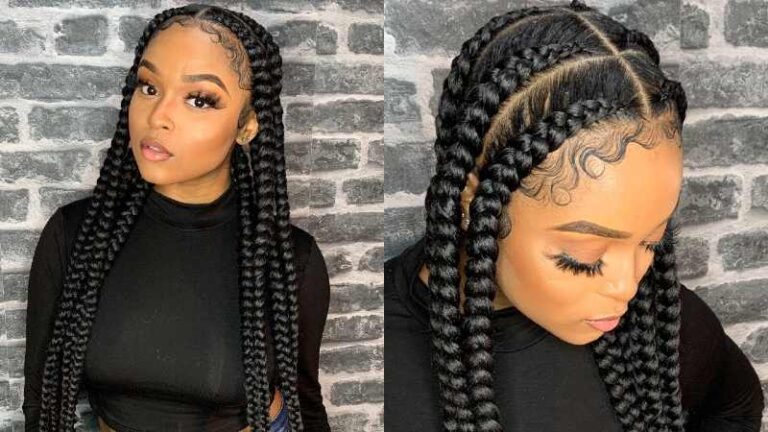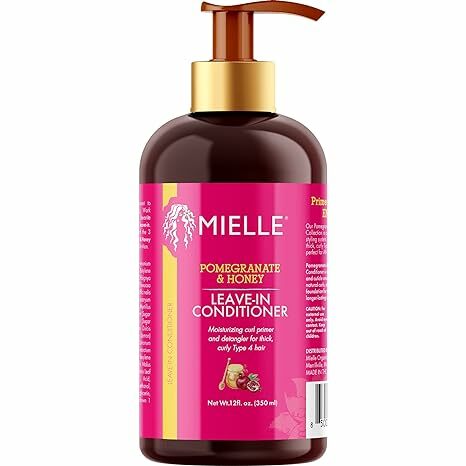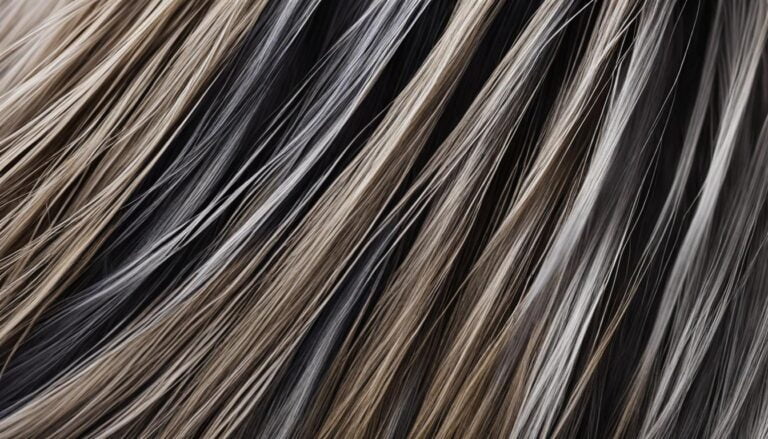How to Regrow Hair? Effective Methods and Trusted Tricks for a Fuller, Healthier Mane
Are you experiencing hair loss and wondering how to regrow your hair? Don’t worry, there are several natural remedies and treatments that may help you regain a fuller, healthier mane. In this article, I will share some effective methods and trusted tricks that can stimulate hair regrowth. Whether you’re dealing with thinning hair or bald spots, these techniques can make a difference.
One of the key factors in regrowing hair is understanding the causes of hair loss. By addressing the root issue, you can effectively target your regrowth efforts. From there, you can explore natural remedies and treatments that suit your needs. Here are some insights and tips to get you started:
Understanding Hair Loss: Causes and Types
When it comes to hair loss, understanding the underlying causes and different types is crucial in finding the most effective solutions. Hair loss can be attributed to a variety of factors, including genetics, hormonal imbalances, thyroid conditions, medications, nutritional disorders, and high levels of androgens. These factors can contribute to both male pattern baldness and female pattern baldness, two of the most common types of hair loss.
Male pattern baldness typically affects men over the age of 50 and is characterized by a receding hairline and thinning at the crown of the head. This type of hair loss is often hereditary and can be passed down through generations. On the other hand, female pattern baldness can occur in women during menopause and is characterized by thinning hair all over the scalp.
It’s important to note that hair loss can take various forms, ranging from gradual thinning in specific areas to overall hair loss throughout the scalp. This can significantly impact one’s self-esteem and overall well-being. Therefore, identifying the specific cause and type of hair loss is essential in determining the most appropriate course of action for regrowth.
As we delve deeper into the topic, we will explore natural hair regrowth treatments, hair regrowth supplements and vitamin-rich diets, medical treatments for hair loss, and essential hair care tips for those dealing with thinning hair. By understanding the intricacies of hair loss, we can embark on a journey towards regaining a fuller and healthier mane.
Natural Hair Regrowth Treatments
If you’re looking for natural ways to regrow your hair, there are several treatments that can help stimulate hair growth and improve the health of your scalp. These methods are safe, affordable, and can be easily incorporated into your hair care routine. Let’s explore some of the most effective natural hair regrowth treatments.
1. Scalp Massage
Scalp massage is a simple yet effective technique that can promote hair growth. By gently massaging your scalp with your fingertips, you can improve blood circulation to the hair follicles, which in turn enhances the delivery of essential nutrients and oxygen to the scalp. This increased blood flow stimulates hair growth and can also help relax the scalp, reducing stress and tension.
2. Aloe Vera
Aloe vera has long been known for its soothing properties and can be used to promote hair regrowth. The gel from the aloe vera plant contains enzymes that can help cleanse the scalp, balance its pH levels, and stimulate hair follicles. Apply aloe vera gel directly to your scalp and massage it gently. Leave it on for about 30 minutes before rinsing it off with lukewarm water. Regular use of aloe vera can help strengthen your hair and encourage regrowth.
3. Coconut Oil
Coconut oil is a versatile natural remedy that can nourish your hair and promote regrowth. Its unique composition allows it to penetrate deep into the hair shaft, reducing protein loss and improving hair density. Massage warm coconut oil into your scalp and leave it on for a few hours or overnight. Rinse it off with a mild shampoo. Regular use of coconut oil can help moisturize your scalp, reduce inflammation, and support healthy hair growth.
These natural hair regrowth treatments can be used alone or in combination to stimulate hair growth and improve the overall health of your hair and scalp. Remember to be consistent and patient with your hair care routine, as it may take some time to see significant results. If you have any underlying medical conditions or concerns about your hair loss, it’s always best to consult with a healthcare professional for personalized advice.
Hair Regrowth Supplements and Vitamin Rich Diets
When it comes to regrowing hair, supplements and a balanced diet rich in essential vitamins and minerals can play a vital role in promoting hair growth. One popular supplement on the market is Viviscal, which contains key ingredients that support healthy hair growth and strengthen existing hair follicles.
Another supplement to consider is fish oil, which is rich in omega-3 fatty acids. Omega-3s help nourish the hair follicles and promote hair growth. Additionally, ginseng supplements can have a positive impact on hair thickness and density, thanks to their ability to stimulate blood flow to the scalp.
While supplements can be beneficial, it’s important to remember that a well-rounded hair regrowth diet is equally crucial. Incorporating foods that are rich in vitamins A, C, E, and Biotin can provide the necessary nutrients to support healthy hair growth. Eggs, lean red meat, salmon, and whole grains are excellent sources of these vitamins and minerals.
Remember, regrowing hair is a process that requires patience and consistency. By incorporating hair regrowth supplements like Viviscal and fish oil, along with a nutrient-rich diet, you can give your hair the support it needs to grow fuller and healthier.

Medical Treatments for Hair Loss
While natural remedies and lifestyle changes can help promote hair regrowth, there are instances where medical treatments may be necessary to address hair loss effectively. These interventions can include the use of medications, hair transplant surgery, and laser therapy.
Hair loss medications such as minoxidil (Rogaine) and finasteride (Propecia) have shown promising results in slowing down hair loss and stimulating regrowth. Minoxidil is available over the counter and can be applied directly to the scalp, while finasteride requires a prescription and works by inhibiting the hormone responsible for hair loss.
Quote: “Hair loss medications like minoxidil and finasteride have been clinically proven to be effective in promoting hair regrowth and reducing further hair loss.” – Dr. Smith, Dermatologist
Hair transplant surgery is another option for individuals with significant hair loss. This procedure involves removing hair follicles from areas with healthy growth (called the donor site) and transplanting them into areas with thinning or no hair (called the recipient site).
Laser therapy, also known as low-level laser therapy (LLLT), is a non-invasive procedure that uses red light to stimulate hair follicles and promote regrowth. This FDA-approved treatment can be performed at a dermatologist’s office and has shown promising results in improving hair density and thickness.
In conclusion, medical treatments offer viable options for individuals experiencing hair loss. Hair loss medications, hair transplant surgery, and laser therapy have all shown effectiveness in promoting hair regrowth and reducing further hair loss. It’s important to consult with a healthcare professional to determine the most suitable treatment plan based on individual needs and circumstances. By considering these medical interventions alongside natural remedies and proper hair care, individuals can work towards achieving a fuller and healthier mane.
Hair Care Tips for Thinning Hair
When it comes to dealing with thinning hair, adopting a gentle hair care routine is crucial. Harsh chemicals and excessive heat styling can further damage fragile hair strands. To keep your locks healthy and promote regrowth, follow these essential hair care tips:
Avoid Heat Styling
Excessive heat from styling tools like flat irons and curling wands can weaken hair, making it prone to breakage. Embrace your natural texture and limit the use of heat styling tools. If you must use them, apply a heat protectant spray beforehand to minimize damage.
Choose Gentle Shampoos and Conditioners
Opt for sulfate-free, gentle shampoos and conditioners specifically formulated for thinning hair. These products are designed to cleanse without stripping the scalp of essential oils and to provide lightweight hydration without weighing down the hair.
Avoid Tight Hairstyles
Avoid hairstyles that put excessive tension on the hair, such as tight ponytails, braids, or buns. These styles can cause breakage and lead to further thinning. Instead, opt for loose hairstyles that allow your hair to breathe and minimize strain on the strands.
By adopting these hair care tips, you can help protect your thinning hair and promote a healthier scalp environment for regrowth. Remember, consistency is key, so be patient and give your hair the TLC it deserves.

Conclusion
In conclusion, regrowing hair naturally requires a combination of different approaches and techniques. By incorporating natural remedies, supplements, and proper hair care into your routine, you can promote hair regrowth and maintain a healthy mane.
It is important to remember that regrowing hair takes time and consistency. Patience is key as you follow these methods and give them a chance to work. Results may vary depending on individual factors and the underlying cause of hair loss.
If you find that your hair loss persists or worsens despite your efforts, it may be beneficial to consult with a healthcare provider. They can provide further guidance, evaluate your specific condition, and suggest additional treatment options if necessary.
By staying committed to these tips for regrowing hair and utilizing effective hair regrowth techniques, you can improve the health and appearance of your hair. Remember, a holistic and comprehensive approach is often the most successful in achieving your desired results.
FAQ
Are there natural remedies for hair regrowth?
Yes, there are several natural practices and treatments that may help regrow hair. Some options include scalp massage, aloe vera, coconut oil, Viviscal, fish oil, ginseng, onion juice, rosemary oil, geranium oil, and lemon.
What are the causes of hair loss?
Hair loss can be caused by genetics, hormone imbalances, thyroid conditions, medications, nutritional disorders, high levels of androgens, and other factors.
What are the different types of hair loss?
Hair loss can take different forms, including thinning in specific areas or throughout the scalp. Male pattern baldness is most common in men over 50, while female pattern baldness can occur in women during menopause.
How can scalp massage help with hair regrowth?
Scalp massage can improve blood flow and stimulate hair growth by increasing circulation to the hair follicles.
How can aloe vera help with hair loss?
Aloe vera has been used to treat hair loss and can soothe the scalp, providing a healthy environment for hair growth.
How can coconut oil promote hair regrowth?
Coconut oil can reduce protein loss from hair and improve hair density, making it a beneficial treatment for hair regrowth.
What is Viviscal and how does it help with hair regrowth?
Viviscal is a hair regrowth supplement that contains ingredients that promote hair growth and strengthen existing hair.
How can fish oil and ginseng supplements improve hair thickness and density?
Fish oil and ginseng supplements can provide essential nutrients that support hair health and improve hair thickness and density.
Are there any medical treatments for hair loss?
Yes, medications like minoxidil (Rogaine) and finasteride (Propecia) can help slow or reverse hair loss. Hair transplant surgery and laser therapy are also options for medical treatment.
What hair care tips can help with thinning hair?
It’s important to be gentle with your hair and avoid harsh chemicals or excessive heat styling. Using a gentle shampoo and conditioner, avoiding tight hairstyles that pull on the hair, and minimizing heat styling can help protect and nourish the hair.







